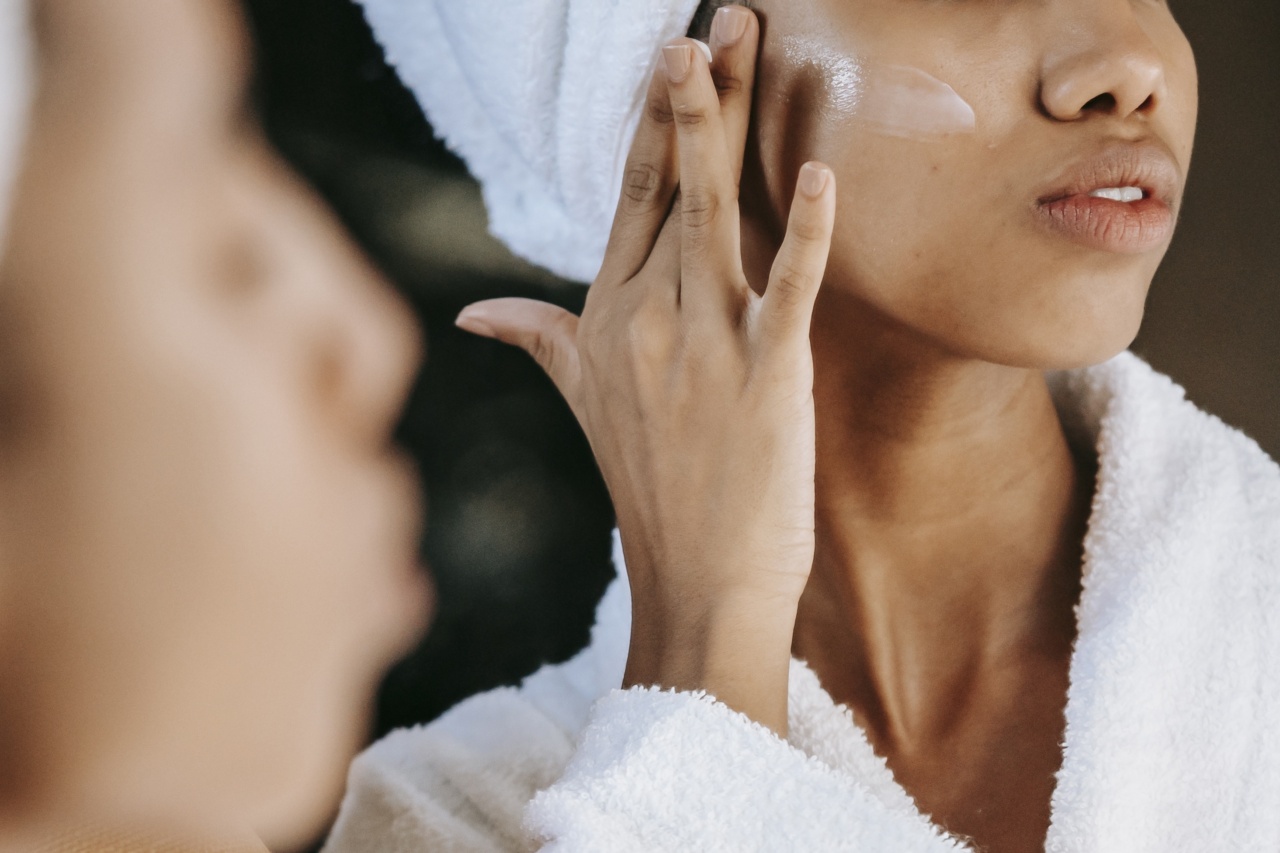If you have sensitive skin, you know how important it is to take extra care and avoid potential irritants. Sensitive skin can be easily triggered by various factors such as weather changes, certain ingredients in skincare products, and even stress.
To keep your skin calm and comfortable, it’s crucial to be mindful of the products and practices you use. In this article, we will discuss some common errors people make when dealing with sensitive skin and how to avoid them.
1. Over-Exfoliating
Exfoliation is an essential step in any skincare routine as it helps remove dead skin cells and reveal a smoother, radiant complexion.
However, over-exfoliating can strip away the skin’s natural oils and cause irritation, especially for those with sensitive skin. Avoid using harsh exfoliants such as scrubs with large particles or harsh chemicals.
Instead, opt for gentle exfoliants that contain finely milled particles or enzymatic ingredients such as papaya or pineapple. Additionally, limit exfoliating to once or twice a week to prevent excessive irritation.
2. Using Fragranced Products
Fragrances may smell delightful, but they can wreak havoc on sensitive skin. Many fragranced products contain chemicals that can cause irritation, redness, or even allergic reactions.
To avoid this, opt for fragrance-free products, especially when it comes to moisturizers, cleansers, and serums.
When checking the ingredient list, keep an eye out for terms such as “parfum” or “fragrance” and opt for products labeled “unscented” instead.
3. Skipping Patch Tests
One crucial step that many people with sensitive skin tend to skip is a patch test. A patch test involves applying a small amount of the product to a small area of your skin, typically on your inner arm, and observing for any negative reactions.
This step is especially important when trying out new products or introducing active ingredients.
By performing a patch test, you can ensure that the product won’t cause a severe allergic reaction or irritation when applied to your face or body.
4. Ignoring Sun Protection
We all know the importance of sunscreen in protecting our skin from harmful UV rays. However, individuals with sensitive skin often struggle to find a sunscreen that does not cause irritation or breakouts.
This leads to them skipping sunscreen altogether.
Instead of skipping sun protection, look for gentle, mineral-based sunscreens that use ingredients like zinc oxide or titanium dioxide. These physical blockers are less likely to cause irritation compared to chemical sunscreens.
Additionally, choose sunscreens labeled “fragrance-free” and “hypoallergenic.”.
5. Using Harsh Cleansers
Cleansing your face is an essential step in any skincare routine, but using harsh cleansers can strip the skin of its natural oils and further aggravate sensitivity.
Avoid cleansers that contain sodium lauryl sulfate (SLS) or sodium laureth sulfate (SLES) as they can be too harsh for sensitive skin.
Instead, opt for gentle, soap-free cleansers specifically formulated for sensitive skin. Look for ingredients like aloe vera, chamomile, or green tea, which provide soothing and calming effects.
6. Not Moisturizing Adequately
Moisturizing is an essential step for all skin types, including sensitive skin. It helps maintain the skin’s hydration, strengthens its protective barrier, and reduces the risk of irritation.
However, using the wrong moisturizer or skipping this step can lead to dryness, redness, and sensitivity.
Choose moisturizers formulated for sensitive skin, preferably those labeled “non-comedogenic” and “fragrance-free.” Look for ingredients like hyaluronic acid, ceramides, or niacinamide, which help hydrate and soothe the skin.
7. Overloading on Active Ingredients
Active ingredients such as retinoids, AHAs, and BHAs can be beneficial for certain skincare concerns. However, using too many active ingredients at once can overwhelm sensitive skin and lead to redness, peeling, or increased sensitivity.
Introduce new active ingredients slowly and one at a time to allow your skin to adjust. Also, remember to follow the instructions provided and gradually increase the frequency of use to minimize potential irritation.
8. Scrubbing Vigorously
When cleansing or exfoliating, it can be tempting to scrub vigorously in hopes of achieving a deeper clean. However, this can actually damage the skin’s protective barrier, leading to increased sensitivity and irritation.
Instead, be gentle with your skin. Use light and circular motions when cleansing, and avoid using excessive pressure. The key is to be thorough yet gentle, allowing your skin to stay healthy and balanced.
9. Neglecting Makeup Removal
Leaving makeup on overnight can clog pores, leading to breakouts and potential skin irritation. For individuals with sensitive skin, this can be even more problematic. It’s essential to remove makeup thoroughly before going to bed.
Opt for gentle makeup removers that are free of harsh chemicals such as alcohol or fragrances. Micellar water or cleansing oils are excellent options for effectively removing makeup without causing irritation.
10. Stressing Out
Stress not only takes a toll on your mental health but also affects your skin. It can trigger flare-ups and increase sensitivity, making your skin more prone to irritation.
While it’s easier said than done, managing stress is crucial for maintaining healthy skin.
Find stress-relieving activities that work for you, such as exercising, meditating, or spending time outdoors. Taking care of your mental well-being will not only benefit your skin but also your overall health.
By avoiding these common errors and being cautious with your sensitive skin, you can keep it calm, comfortable, and less prone to irritation.
Remember to prioritize gentle skincare products, perform patch tests, and be mindful of your skin’s reactions to different ingredients. With a little care and attention, you can achieve a balanced and radiant complexion, even with sensitive skin.































